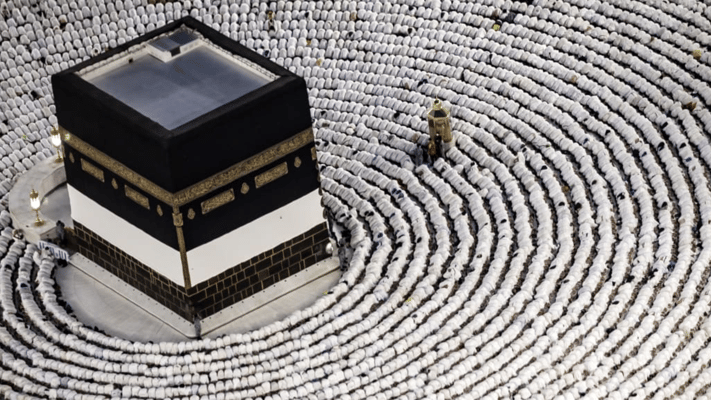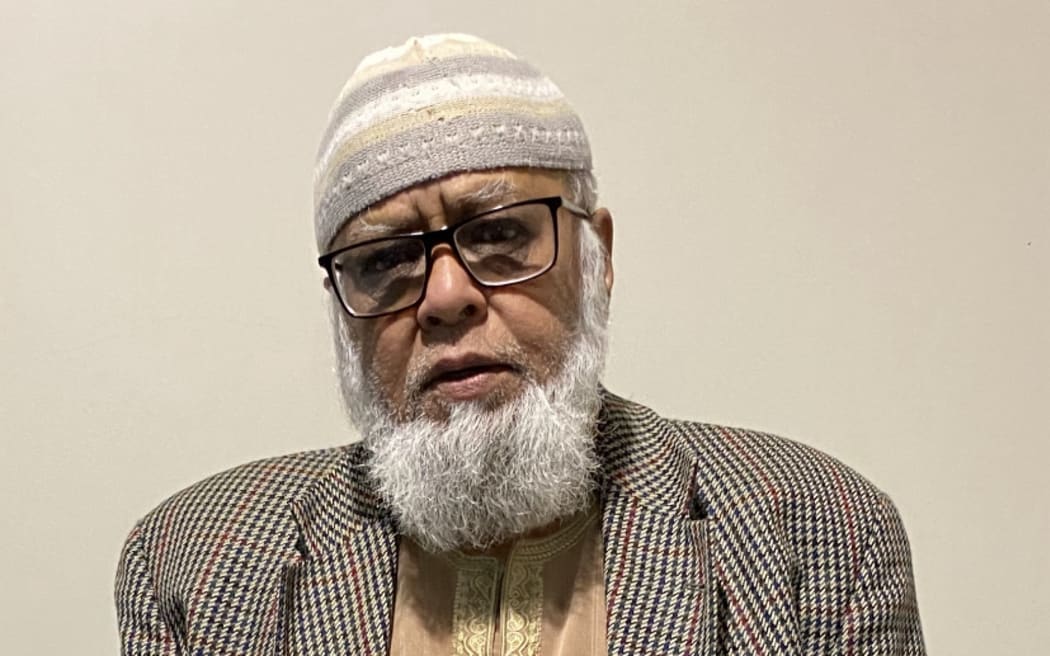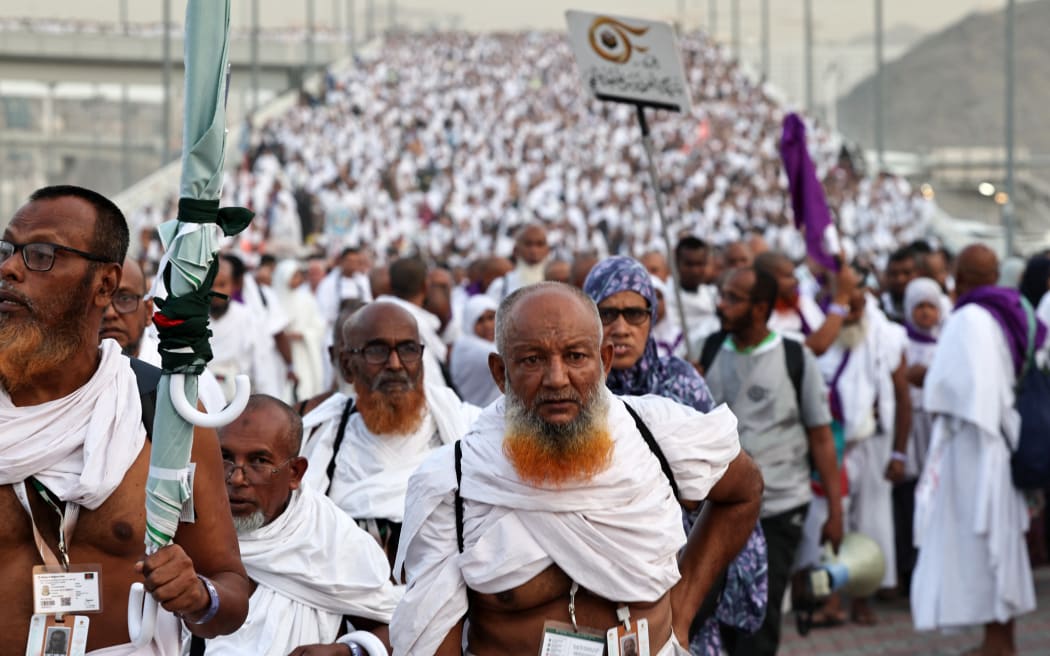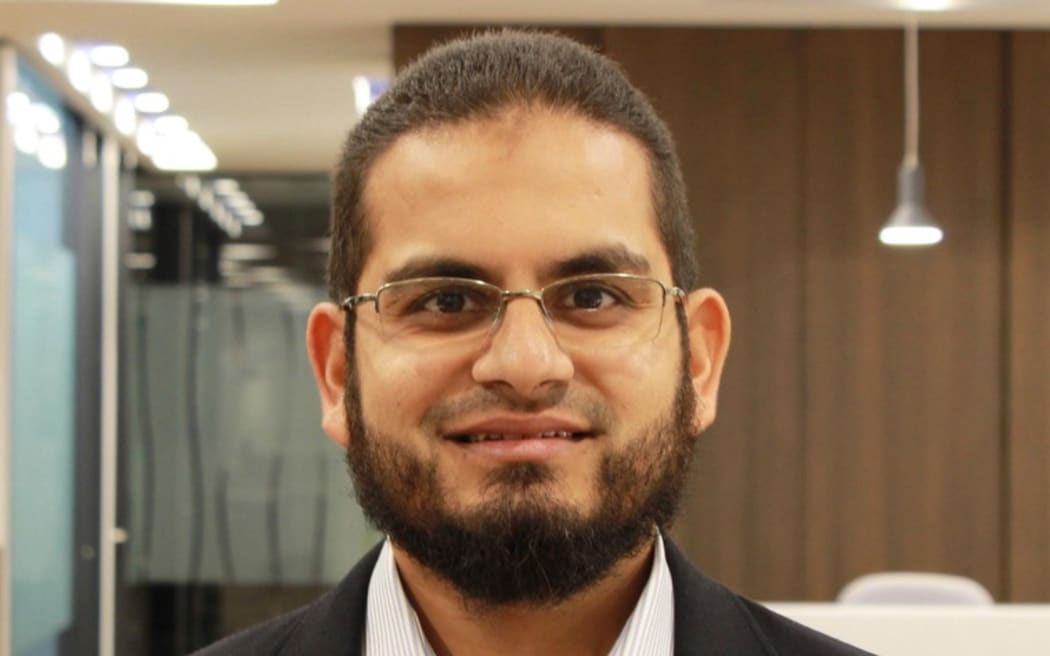NZ Muslims Reflect On Hajj During Eid al-Adha

Thousands of Muslim New Zealanders are gearing up to celebrate one of the most important Islamic festivals of the year - Eid al-Adha.
The Hilal Committee of the Federation of Islamic Associations of New Zealand has declared that Eid al-Adha will be observed in the country on Tuesday.
Events marking the occasion are planned nationwide in cities such as Auckland, Hamilton, Wellington and Christchurch.
New Zealand Eid Day will host events at Auckland's Eden Park, Claudelands Event Centre in Hamilton, Sky Stadium in Wellington and at 475 Memorial Avenue, Burnside, in Christchurch from 8am to 3:30pm on Tuesday.
Additionally, the Pakistan Association of New Zealand will host an Eid al-Adha dinner buffet and various activities at Mt Albert War Memorial Hall in Auckland.
Eid al-Adha, or the "Feast of Sacrifice", begins on the 10th day of the Islamic lunar month of Dhul-Hijja.
Celebrated by Muslims worldwide, Eid al-Adha commemorates Prophet Ibrahim's willingness to sacrifice his son as an act of obedience to God, before God provided a sheep to be sacrificed instead.
As part of the festival, worshippers typically slaughter a sheep or goat and distribute part of the meat to those in need.
The festival also marks the end of the annual Hajj pilgrimage.
Hajj, one of the Five Pillars of Islam, is a pilgrimage to Mecca in Saudi Arabia. It is one of the largest mass gatherings in the world.
More than 1.8 million pilgrims are believed to be taking part in the pilgrimmage this year, according to Saudi officials.
Every Muslim who is physically and financially able is expected to make the journey at least once in their lifetime.
During Hajj, pilgrims perform various acts of worship and renew their faith and sense of purpose. They stand before the Kaaba, a shrine built by Ibrahim, and praise Allah together.
Each year, Muslims from around the globe, including many New Zealanders, travel to the holy land.

Muhammed Tamiq Hussain led Kiwis to Hajj for two decades. Photo: Supplied
Mohammed Tamiq Hussain,74, went to Mecca for the first time in 2000.
"I went there with my wife and, with one look at the House of Allah, you fall in love with that place," Hussain said.
After returning to New Zealand, Hussain felt a strong desire to go back.
"We used to go with the Australian group as there were none from New Zealand," he said.
Determined to facilitate Hajj for fellow Kiwis, Hussain contacted the Australian group and expressed his interest in leading Hajj groups from New Zealand.
They agreed, and he took 15 Kiwis on his first trip, continuing to do so for the next two decades.
"I was granted a quota of 100, but I never took that many. It was usually around 60 to 80 people each year," he said.

Muslim pilgrims arrive at dawn to perform the symbolic "stoning of the devil" ritual as part of the hajj pilgrimage in Mina near Saudi Arabia's holy city of Mecca. Photo: AFP
In 2022, Saudi Arabia's Ministry of Hajj and Umrah launched an official digital platform called Nusuk to assist pilgrims in planning their journeys to Mecca and Medina, effectively replacing the need for traditional travel agents.
Until 2019, Hussain led hundreds of New Zealanders to Islam's birthplace.
"I did that for a good 20 years and I enjoyed every bit of it," Hussain said.
"Hajj gives you a lot of experience about what Islam is and what it teaches - love, care and faithfulness."
Hussain said the cost of Hajj had increased significantly over the years.
"Especially after Covid-19, when restrictions were lifted, costs rose and there are many more rules and regulations, so I opted out," he said.
Farhan Mirza, 40, had also made the pilgrimage multiple times.
"My first visit was in 2009," Mirza recalled.
"I really enjoyed going to Makkah," he said, using the Islamic name of the city. "You see people from every part of the world, giving you a big sense of global community."

Farhan Mirza went to Hajj for the first time in 2009. Photo: Supplied
He appreciated the sense of equality that existed during Hajj, where everyone wore the same simple white garments.
"We are basically depicting what might be the day of judgement or how we depart from this world, realizing that we are all equal and will leave this world one day," Mirza said.
Mirza highlighted the deep connection Muslims felt with Mecca, the birthplace of the Prophet Muhammad.
"You get to see his resting place in Medina, a city close to Mecca, and experience Islamic history and spirituality," he said.
Mirza said family members returning from the pilgrimage often received a special welcome, sharing joy and a sense of achievement.
Mirza said the community came together for Eid al-Adha.
"Apart from the Hajj pilgrimage, we celebrate with friends, family and food," Mirza said.
He said a celebration typically spanned three days, involving the distribution of meat to the needy and overseas.
"There are also events and activities, and we gather over weekends to enjoy food and exchange gifts with family," he said. "Eid is about sacrificing our desires and putting obedience to God first."
Thousands of Muslim New Zealanders are gearing up to celebrate one of the most important Islamic festivals of the year - Eid al-Adha.
The Hilal Committee of the Federation of Islamic Associations of New Zealand has declared that Eid al-Adha will be observed in the country on Tuesday.
Events marking...
Thousands of Muslim New Zealanders are gearing up to celebrate one of the most important Islamic festivals of the year - Eid al-Adha.
The Hilal Committee of the Federation of Islamic Associations of New Zealand has declared that Eid al-Adha will be observed in the country on Tuesday.
Events marking the occasion are planned nationwide in cities such as Auckland, Hamilton, Wellington and Christchurch.
New Zealand Eid Day will host events at Auckland's Eden Park, Claudelands Event Centre in Hamilton, Sky Stadium in Wellington and at 475 Memorial Avenue, Burnside, in Christchurch from 8am to 3:30pm on Tuesday.
Additionally, the Pakistan Association of New Zealand will host an Eid al-Adha dinner buffet and various activities at Mt Albert War Memorial Hall in Auckland.
Eid al-Adha, or the "Feast of Sacrifice", begins on the 10th day of the Islamic lunar month of Dhul-Hijja.
Celebrated by Muslims worldwide, Eid al-Adha commemorates Prophet Ibrahim's willingness to sacrifice his son as an act of obedience to God, before God provided a sheep to be sacrificed instead.
As part of the festival, worshippers typically slaughter a sheep or goat and distribute part of the meat to those in need.
The festival also marks the end of the annual Hajj pilgrimage.
Hajj, one of the Five Pillars of Islam, is a pilgrimage to Mecca in Saudi Arabia. It is one of the largest mass gatherings in the world.
More than 1.8 million pilgrims are believed to be taking part in the pilgrimmage this year, according to Saudi officials.
Every Muslim who is physically and financially able is expected to make the journey at least once in their lifetime.
During Hajj, pilgrims perform various acts of worship and renew their faith and sense of purpose. They stand before the Kaaba, a shrine built by Ibrahim, and praise Allah together.
Each year, Muslims from around the globe, including many New Zealanders, travel to the holy land.

Muhammed Tamiq Hussain led Kiwis to Hajj for two decades. Photo: Supplied
Mohammed Tamiq Hussain,74, went to Mecca for the first time in 2000.
"I went there with my wife and, with one look at the House of Allah, you fall in love with that place," Hussain said.
After returning to New Zealand, Hussain felt a strong desire to go back.
"We used to go with the Australian group as there were none from New Zealand," he said.
Determined to facilitate Hajj for fellow Kiwis, Hussain contacted the Australian group and expressed his interest in leading Hajj groups from New Zealand.
They agreed, and he took 15 Kiwis on his first trip, continuing to do so for the next two decades.
"I was granted a quota of 100, but I never took that many. It was usually around 60 to 80 people each year," he said.

Muslim pilgrims arrive at dawn to perform the symbolic "stoning of the devil" ritual as part of the hajj pilgrimage in Mina near Saudi Arabia's holy city of Mecca. Photo: AFP
In 2022, Saudi Arabia's Ministry of Hajj and Umrah launched an official digital platform called Nusuk to assist pilgrims in planning their journeys to Mecca and Medina, effectively replacing the need for traditional travel agents.
Until 2019, Hussain led hundreds of New Zealanders to Islam's birthplace.
"I did that for a good 20 years and I enjoyed every bit of it," Hussain said.
"Hajj gives you a lot of experience about what Islam is and what it teaches - love, care and faithfulness."
Hussain said the cost of Hajj had increased significantly over the years.
"Especially after Covid-19, when restrictions were lifted, costs rose and there are many more rules and regulations, so I opted out," he said.
Farhan Mirza, 40, had also made the pilgrimage multiple times.
"My first visit was in 2009," Mirza recalled.
"I really enjoyed going to Makkah," he said, using the Islamic name of the city. "You see people from every part of the world, giving you a big sense of global community."

Farhan Mirza went to Hajj for the first time in 2009. Photo: Supplied
He appreciated the sense of equality that existed during Hajj, where everyone wore the same simple white garments.
"We are basically depicting what might be the day of judgement or how we depart from this world, realizing that we are all equal and will leave this world one day," Mirza said.
Mirza highlighted the deep connection Muslims felt with Mecca, the birthplace of the Prophet Muhammad.
"You get to see his resting place in Medina, a city close to Mecca, and experience Islamic history and spirituality," he said.
Mirza said family members returning from the pilgrimage often received a special welcome, sharing joy and a sense of achievement.
Mirza said the community came together for Eid al-Adha.
"Apart from the Hajj pilgrimage, we celebrate with friends, family and food," Mirza said.
He said a celebration typically spanned three days, involving the distribution of meat to the needy and overseas.
"There are also events and activities, and we gather over weekends to enjoy food and exchange gifts with family," he said. "Eid is about sacrificing our desires and putting obedience to God first."










Leave a Comment